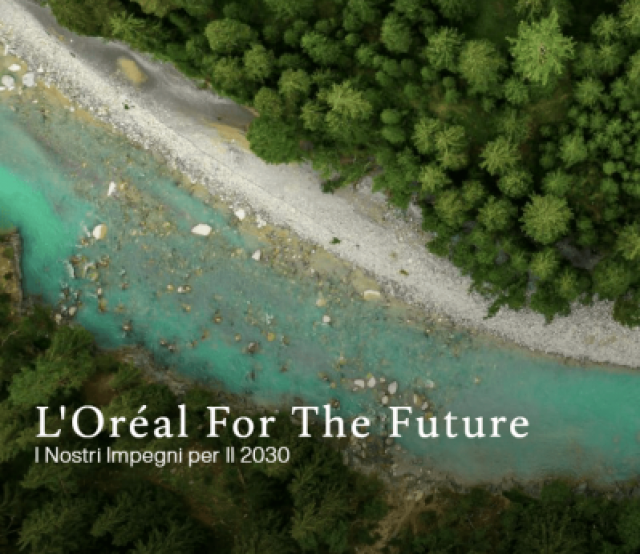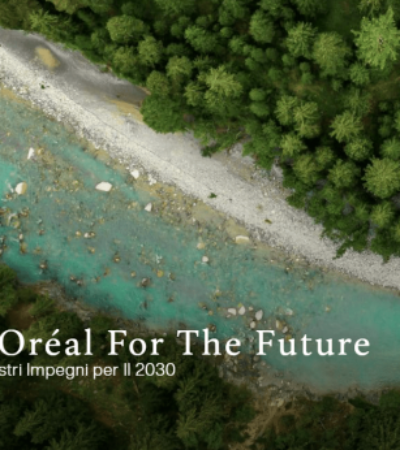The subject of environmental certification, whether of process or product, is of increasing interest to companies, especially in the light of the market’s growing competitiveness on this front.
To all intents and purposes, certifications represent a proactive corporate policy tool, useful for testifying to one’s efforts and positioning on issues that are no longer as emerging as sustainability. Obviously, the benefits associated with the adoption of certification tools are only obtainable where one decides to use methodologies built on solid scientific and procedural foundations, capable of ensuring the veracity of what is communicated to one’s stakeholders.
L’Oréal, a world leader in the beauty & cosmetics sector for over 110 years, has decided to undertake, with the technical support of Circularity, a path aimed at enhancing its range of sustainability certifications adopted for its accessories and promotional displays, which in fact represent the image conveyed by the company to its consumers, exposing the group to obvious risks of “Corporate Responsibility” (i.e., are we talking about green washing or environmental impacts resulting from a failure to integrate CSR parameters?).
To safeguard the corporate image and proprietary brands through a solid positioning on the sustainability front, L’Oréal has decided to commit to building a secure, traceable and sustainable supply chain through the implementation of its range of certifications.
The work carried out with the support of Circularity focused on assessing the current range of certifications related to promotional products, in addition to identifying possible new solutions.
Circularity’s technical expertise was then put at the service of the company, through a consultancy process tailored to the needs expressed by the client.
First of all, a survey of the company’s current certifications for ‘gift promos’ was carried out, which was accompanied by a simultaneous classification and evaluation of the materials used to manufacture these products and their packaging, necessary to identify, in a subsequent phase, the types of certifications that are today most recognised by the market for the specific class of product and material. This last selection phase was then carried out through a sector analysis that allowed the identification of the tools that can be defined as today most recognised by the market, to witness and communicate sustainability performance (first and foremost in environmental terms).
The output produced is characterised as a document fully usable by the L’Oréal marketing department, able to support it in identifying new certification paths to be taken or to be taken, for example, by its suppliers, for the construction of a supply chain that integrates sustainability and its key principles in a solid and structured manner.
The choice of new certifications is only the first step in the overall project solution proposed by Circularity for l’Oreal.
The results attested by certifications often require a careful evaluation of the messages communicated to stakeholders (consumers first and foremost), especially to avoid them being misleading or not conforming to what is expressly stated in the certification itself.
The risk of so-called ‘greenwashing’ is very high and can cause damaging consequences for the company’s reputation and image.

It is in this context that the international standard ISO 14021:2016 has been expressly created to standardise, where possible, the production of environmental product self-declarations. More precisely, the standard identifies and sanctions the requirements for self-declared environmental assertions, while describing how they can be used.
In the light of the requirements of the standard in question, the technical support provided by the Circularity team therefore focused on assessing the environmental claims proposed by L’Oréal’s marketing team, pointing out, where necessary, any non-conformities and suggesting any necessary changes to make it compliant.



